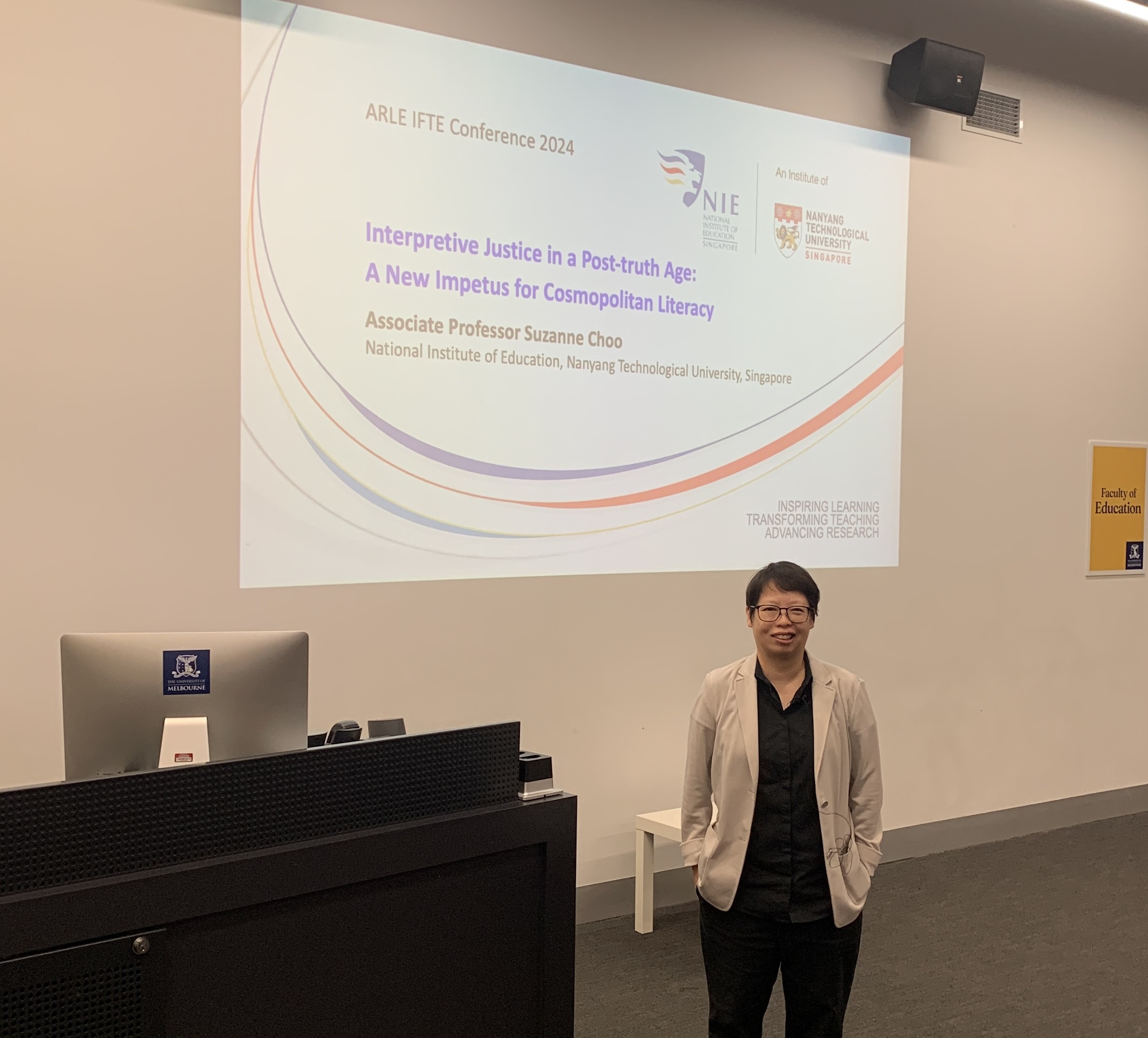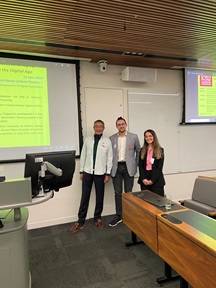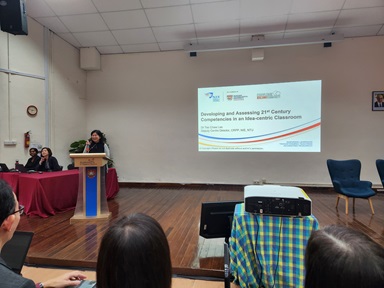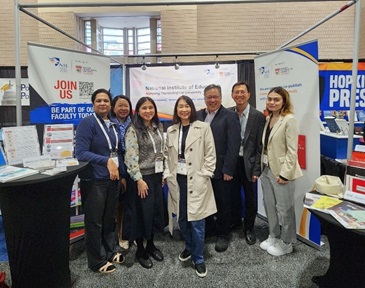A/P Suzanne Choo & PhD students present their research at the Association for Research in L1 Education (ARLE) and International Federation for the Teaching of English (IFTE) conference

A/P Suzanne Choo delivered a keynote presentation titled “Interpretive Justice in a Post-truth Age: A New Impetus for Cosmopolitan Literacy” at the Association for Research in L1 Education (ARLE) and International Federation for the Teaching of English (IFTE) conference hosted by the University of Melbourne in June 2024. A/P Choo's keynote address discussed the importance of interpretive justice given that questions about fairness, equity, and other notions of justice arise first from interpretations of communities and sociopolitical contexts. She discussed the importance of being aware about different paradigms of justice by comparing critical, post-structuralist traditions with virtue-oriented perspectives. The presentation was developed from a recent paper “Hermeneutical justice as the foundation of cosmopolitan literacy in a post-truth age” that she published earlier this year in the Journal of Adolescent & Adult Literacy.
ELL’s PhD students, Ow Yeong Wai Kit and Dominic Nah also delivered the following presentations at the conference:
.jpg?sfvrsn=cd12a4f1_1)
ELL PhD student, Ow Yeong Wai Kit delivered a presentation titled "Learning by Heart in L1 Pedagogy: Envisionment-Building through Memorisation and Recitation of Poetry in English in Singapore". Synopsis of his paper presentation: Learning poetry by heart—historically criticised as rote learning—has the potential to enrich individuals' lives. This study examines the 2023 National Poetry Recitation Competition in Singapore, demonstrating how poetry memorisation can support envisionment-building by promoting the joy of learning and fostering deeper engagement and passion for English/Literature, while championing student agency and choice.
.jpg?sfvrsn=e07d768b_1)
ELL PhD student, Dominic Nah delivered a presentation titled “Towards a Dialogic Ethical Criticism: A Framework for Examining Student Responses to Referent Others in Literature Classroom Interactions of Ethical Meaning-making”. While other-oriented Literature pedagogies sensitise students to inclusivity and injustice, teachers remain concerned about managing student resistance, discomfort and safety. Dominic proposed an ethical-hermeneutical framework of Dialogic Ethical Criticism to help educators map the range of student responses, and what opens and closes ethically sensitive discussions in the Literature classroom.
Dominic also delivered a presentation titled “Scribbles & murmurs: Collaborating on/in the margins of qualitative method & the student experience of ethically challenging literature” with Allayne Horton (University of Melbourne, Australia). In this collaborative paper, they argued that new approaches are needed to attune to the personal and peripheral moments in classrooms, murky and troublesome they may be, they provoke difficult ethical and methodological questions.














/enri-thumbnails/careeropportunities1f0caf1c-a12d-479c-be7c-3c04e085c617.tmb-mega-menu.jpg?Culture=en&sfvrsn=d7261e3b_1)

/cradle-thumbnails/research-capabilities1516d0ba63aa44f0b4ee77a8c05263b2.tmb-mega-menu.jpg?Culture=en&sfvrsn=1bc94f8_1)

7e6fdc03-9018-4d08-9a98-8a21acbc37ba.tmb-mega-menu.jpg?Culture=en&sfvrsn=7deaf618_1)


---cover.tmb-listing.jpg?Culture=en&sfvrsn=42ac239a_1)



